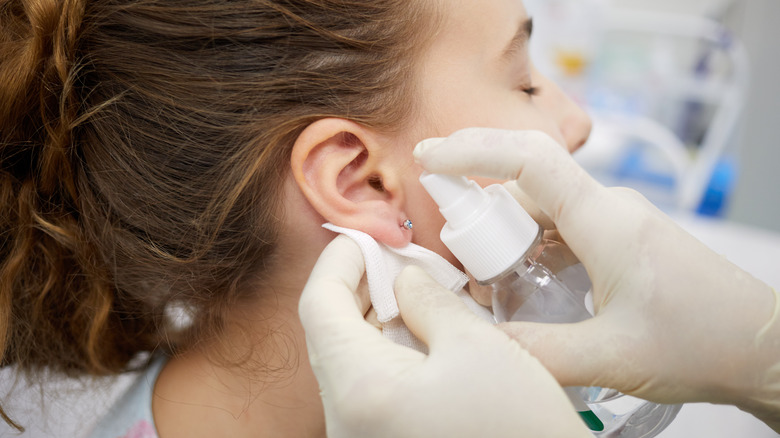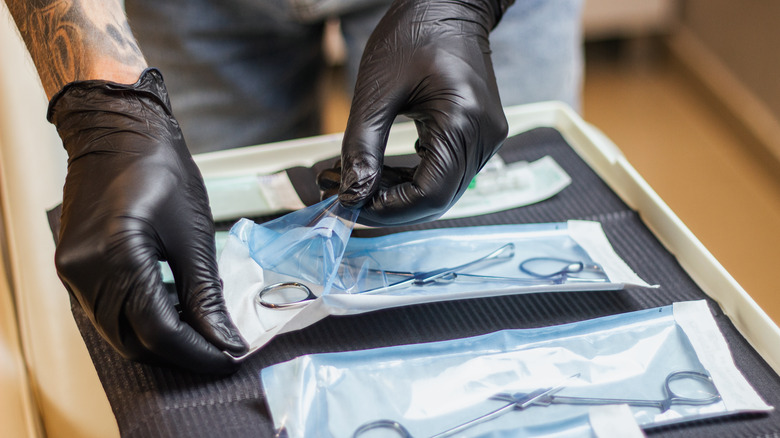What Really Happens When A Piercing Closes Up
After enduring the nerves and pain that accompany a new piercing, there's nothing more disappointing than having the hole close sooner than you would like. There are a lot of variables that go into healing your piercings, but doing the procedure correctly is the first, most important step.
Essentially, the closing of a piercing hole is your immune system's response to a wound. Studs co-founder and CMO, Lisa Bubbers, told Today Style that healing rates can vary, but new piercings close much more quickly than older ones. "If you have a brand new piercing, your hole can close in a few hours," she said. "When you create a hole in your ear, your immune system kicks into gear and tries to heal and repair that hole."
The immune system response triggers regenerative tissue in the wound. Dermatologist Rachel Nazarian of Schweiger Dermatology Group explained to Byrdie how the process works. "Rather than healing around the path of injury, the scar tissues closes up the path, and the two sides of skin contact each other, blocking the original pierced opening," she said.
Healing your piercing can take up to a few months
While a piece of jewelry is still in the hole, healing times can vary between a matter of weeks to several months, Bubbers noted (per Today Style). But older, healed piercings can also close up if left empty for too long. If you find yourself with a new or old piercing that closed up unintentionally, you should probably see a piercer to determine the next step. If you try to force a piercing open once it has started healing, there are many potential risks — including infection.
Despite what "The Parent Trap" may have led to you to believe about piercing your own ears, it just isn't safe. A survey conducted by Columbia University found that roughly half of all piercings performed at home end up requiring some sort of medical attention. Attempting to re-pierce yourself at home involves a high level of risk, including infection and nerve damage, (per Healthline). Rather than trying to open a new hole by piercing yourself, you should see a trained professional who has a sterilized workplace and tools.
Enjoy those piercings, but do it safely!

